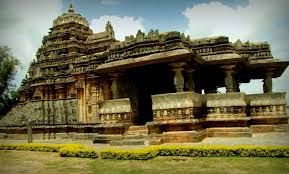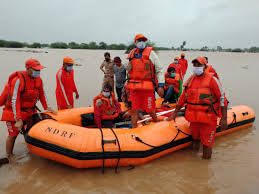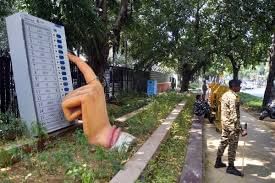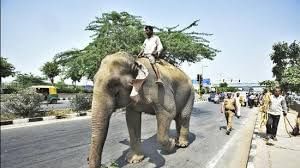UPSC Daily Current Affairs- 26th March 2024 | Current Affairs & Hindu Analysis: Daily, Weekly & Monthly PDF Download
GS-I
Chalukyas of Kalyani
Subject: History

Why in News?
A 900-year-old Kannada inscription from the Kalyana Chalukya dynasty was discovered at Gangapuram in Telangana.
About Chalukya Dynasty:
- The Chalukyas ruled the Deccan in central India from the 6th to 12th centuries as three distinct but related dynasties.
- The Chalukyas of Badami reigned from the 6th to 8th centuries, while the Chalukyas of Kalyani and the Chalukyas of Vengi were the two sibling dynasties.
Key Facts about Chalukyas of Kalyani:
- The Chalukyas of Kalyani, primarily a Kannadiga dynasty, derived their name from their capital, Kalyani, located in present-day Bidar district of Karnataka.
- Under Vikramaditya VI (1076-1126 CE), the dynasty reached its peak, known as the "Chalukya Vikrama era," marked by military successes against various rulers, including the Cholas.
- Following Vikramaditya VI's demise, internal strife and conflicts with the Chola dynasty led to the decline of the Western Chalukya empire.
Administration, Art, and Architecture:
- Power succession within the dynasty was typically to a male heir or brother in their absence, with the kingdom managed by feudatories like the Hoysala and Kakatiya.
- The Chalukyas maintained a formidable army and contributed significantly to Kannada and Telugu literature, while fostering Hinduism, Buddhism, and Jainism.
- They minted distinctive gold coins called pagodas and left a lasting architectural legacy, influencing later styles like the Hoysala architecture.
- Their temples in the Gadag style, found in regions like Tungabhadra-Krishna doab, blend religious and secular themes, showcasing intricate craftsmanship.
Source: The Hindu
GS-II
National Disaster Response Fund (NDRF)
Subject: Polity and Governance

Why in News?
The Karnataka Government has appealed to the Supreme Court to prompt the Central Government to release financial aid from the National Disaster Response Fund (NDRF).
About National Disaster Response Fund (NDRF)
- It is a fund operated by the Central Government to address the costs related to immediate response, relief, and rehabilitation in the event of a threatening disaster.
- NDRF is designed to support State Disaster Response Funds (SDRF) in scenarios of severe disasters when sufficient funds are lacking in SDRF.
- The fund is placed in the Public Account of the Government of India under reserve funds not bearing interest, allowing the government to access the funds without parliamentary approval.
- Eligibility criteria for NDRF assistance include both natural calamities like cyclones, droughts, earthquakes, and man-made disasters such as terrorist attacks or chemical emergencies.
- States requesting NDRF funding must submit a detailed memorandum outlining the damage and financial requirements across various sectors. The Central Government then evaluates the situation and disburses additional funds accordingly.
- Financial aid from NDRF is intended for immediate relief efforts and not for compensating property or crop loss. It is specifically earmarked for emergency response, relief, and rehabilitation activities.
- NDRF funding does not cater to disaster preparedness, restoration, reconstruction, or mitigation, which are covered by separate schemes like the National Disaster Mitigation Fund (NDMF) and others.
Sources of Financing NDRF
- Funding for NDRF is generated through a cess levied on specific items subject to excise and customs duties, approved annually through the Finance Bill.
- Additional funding requirements beyond NDRF allocations are met using general budgetary resources.
- The National Executive Committee (NEC) of the National Disaster Management Authority oversees expenditure decisions related to NDRF.
- The accounts of NDRF are subject to annual audits conducted by the Comptroller and Auditor General (CAG).
Source: NDTV
Campaigning in the Name of Religion
Subject: Polity and Governance

Why in News?
The Bharatiya Janata Party (BJP) complained to the Election Commission of India (ECI) about Rahul Gandhi's remarks on 'shakti', alleging he hurt Hindu sentiments. In response, the Dravida Munnetra Kazhagam (DMK) lodged a counter complaint against the Prime Minister for similar religious appeals.
- Background: Various political leaders have historically sought votes by invoking religious sentiments, leading to legal consequences. Notable cases include Bal Thackeray of Shiv Sena being convicted by the Supreme Court in 1995 for this practice.
- Legal Framework:
- Representation of the People Act, 1951 (RP Act): Section 123(3) prohibits candidates from using religion, race, caste, community, or language to solicit votes. Section 123(3A) condemns efforts to incite enmity during elections.
- Model Code of Conduct (MCC): A set of guidelines for political parties, prohibiting appeals based on differences or hatred among communities. It restricts the use of religious places for electioneering.
- Historical Context: Amendments over time have tightened regulations, emphasizing the separation of religion from electoral processes to prevent divisive appeals.
- Supreme Court Ruling: In the Abhiram Singh case, the Court ruled that candidates cannot appeal for votes based on their religion or that of the voters, ensuring the secular nature of elections.
Source: The Hindu
MARITIME ANTI-PIRACY ACT
Subject: Polity and Governance

Why in News?
The Maritime Anti-Piracy Act has been highlighted by Navy Chief Admiral R. Hari Kumar for its crucial role in boosting the Indian Navy's effectiveness during 'Operation Sankalp', a 100-day mission.
Background
- 'Operation Sankalp' covered regions from the Gulf of Aden to the North Arabian Sea and the East Coast of Somalia.
Overview of the Act
- The Maritime Anti-Piracy Act of 2022 is a significant legislation in India aimed at combating piracy in international waters.
- Enacted on January 31, 2023, and enforced on February 22, 2023, it aligns with the United Nations Convention on the Law of the Sea regarding piracy suppression.
- The act outlines penalties for piracy-related activities, encompassing acts of commission, attempted piracy, abetment, or conspiracy.
- Empowering the Indian Navy and Coast Guard, the law allows for the boarding, seizure, and arrest of pirates within high seas, Exclusive Economic Zone (EEZ), and beyond.
- Perpetrators can face legal action in Indian courts, leading to potential life imprisonment, fines, or both. Notably, extradition is also a possibility under the act, particularly with countries having relevant treaties with India.
- An extradition agreement with Somalia has facilitated the extradition of Somalian pirates since 2017.
Source: The Hindu
ELECTORAL TRUST
Subject: Polity and Governance

Why in News?
Two electoral trusts have distributed corporate donations to political parties through the electoral bonds route.
Electoral Trusts Overview
- An Electoral Trust is a non-profit entity designed to collect voluntary contributions and distribute them to political parties in India.
- The primary goal of Electoral Trusts is to increase transparency in political funding by ensuring that donations follow a regulated process.
Purpose and Establishment
- Electoral Trusts act as intermediaries between donors, whether individuals or companies, and political parties.
- They were established in 2013 to streamline political funding procedures and uphold transparency standards.
Eligibility and Registration
- An Electoral Trust must be a non-profit company registered under Section 29A of the Representation of People Act, 1951.
- It functions as a platform for collecting contributions and disbursing them to political entities.
Donation Distribution
- 95% of the contributions received by an Electoral Trust within a financial year must be allocated to registered political parties.
- Unlike the Electoral Bonds (EB) Scheme that permitted anonymous donations, Electoral Trusts emphasize disclosure by revealing contributors and beneficiaries to the Election Commission of India.
Reporting and Transparency
- Electoral Trusts are obligated to present contribution reports to the Election Commission, outlining their donors and the parties they have supported.
- These reports are open to public scrutiny, ensuring accountability and transparency in the political funding process.
Source: Times of India
European Union’s Digital Markets Act (DMA)
Subject: International Relations

Why in News?
Recently, European antitrust regulators announced investigations into Apple, Alphabet's Google, and Meta Platforms for potential violations of the EU's new Digital Markets Act.
About the Digital Markets Act (DMA)
- The DMA is a law in the EU designed to promote fairness and competition in the digital sector. Its objective is to ensure a safer internet, empower citizens, improve consumer protections, and encourage the development of high-quality digital services.
- One of the key aspects of the DMA is the identification of "gatekeepers" based on specific criteria. Gatekeepers are major digital platforms that offer core services like search engines, app stores, and messaging services.
- Gatekeepers are required to adhere to the obligations and prohibitions outlined in the DMA.
- This legislation represents a significant step in regulating the dominant market position of major tech companies.
- Key Measures of the DMA
- Stricter rules governing how gatekeepers can utilize user data, with users needing to explicitly consent to being tracked for advertising purposes.
- Potential collaborations between messaging services and social media platforms, enabling cross-platform messaging (e.g., WhatsApp users messaging users on Telegram).
- Providing users with the ability to uninstall preloaded applications on their devices.
- Prohibition of gatekeepers from prioritizing their products or services in online search results over others.
- The DMA works in conjunction with existing EU competition regulations.
Source: Times of India
GS-III
Mumps
Subject: Science and Technology

Why in News?
Mumps, a viral infection that historically impacts children, has been rapidly spreading in Kerala recently.
Background
- Not limited to Kerala, a rise in cases has been observed in various states like Maharashtra, Telangana, and Andhra Pradesh.
- Initial cases appeared in November 2023 in Malappuram and Kozhikode, extending to Palakkad and Thrissur, leading to significant community outbreaks.
About Mumps
- Mumps is a self-limiting viral infection transmitted through the air, primarily affecting children and teenagers.
- Symptoms include fever, headache, and painful swelling of the salivary glands on both sides of the face.
- No specific treatment exists; recovery typically occurs within two weeks with rest and symptom management.
- Approximately half of infected children display typical symptoms, while nearly 30% remain asymptomatic, leading to underreporting of cases.
Public Health Perspective
- Measles has historically received more attention due to its potential for severe illness and death compared to mumps.
- Mumps, although preventable by vaccination, has not been included in the Universal Immunisation Programme due to its low mortality rate and perceived low public health impact.
- Public health officials emphasize the importance of raising awareness about mumps and enforcing isolation practices to reduce disease transmission.
- The disease can spread before symptoms appear, necessitating a three-week isolation period for patients to minimize contagion.
Source: The Hindu
Captive Elephant (Transfer or Transport) Rules, 2024
Subject: Environment and Ecology

Why in News?
The Union Ministry of Environment, Forest and Climate Change has recently announced the Captive Elephant (Transfer or Transport) Rules, 2024.
Captive Elephants under the Wildlife Protection Act (WPA), 1972
- Elephants are categorized as Schedule I species, making it illegal to capture or trade them, whether in the wild or in captivity, under any circumstances.
- Section 12 of the Act allows for the translocation of Schedule I animals for special purposes like education, scientific research, wildlife population management, and collection of specimens for recognized zoos/museums.
- Captive elephants, due to their historical significance in forest management, timber transport, and religious practices in temples and royal estates, fall under a special category with strict transfer regulations.
- Section 40(2) of the WPA mandates written permission from the Chief Wildlife Warden (CWW) for the acquisition, possession, and transfer of captive elephants.
- An amendment in 2021 by the Environment Ministry allowed the transfer of elephants for religious or other purposes.
Captive Elephant (Transfer or Transport) Rules, 2024
- The rules outline the process for transferring captive elephants within a State or between two States.
- The Chief Wildlife Warden (CWW) of States and Union Territories (UTs) is authorized to approve or reject such transfers.
- Transfers are permitted if the current owner can no longer maintain the elephant or if the animal's well-being will improve in a new environment.
- Transfer is conditional upon the elephant's genetic profile being recorded in the Ministry of Environment, Forest and Climate Change's electronic monitoring system.
- Applications for transfer must be submitted to the deputy conservator of forests (DCF) overseeing the area where the elephant is registered.
- The DCF conducts inspections of both the current and proposed housing facilities, obtains a veterinary certificate, and forwards the details to the CWW for final approval within seven days.
Source: The Hindu
|
44 videos|5271 docs|1113 tests
|
FAQs on UPSC Daily Current Affairs- 26th March 2024 - Current Affairs & Hindu Analysis: Daily, Weekly & Monthly
| 1. What is the National Disaster Response Fund (NDRF)? |  |
| 2. What is the purpose of the European Union’s Digital Markets Act (DMA)? |  |
| 3. What is the significance of the Maritime Anti-Piracy Act? |  |
| 4. What is an Electoral Trust? |  |
| 5. How did the Chalukyas of Kalyani influence Indian history? |  |
















